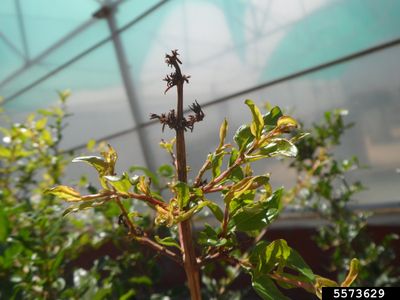Common Diseases of an Avocado Tree
Cankers – Cankers are usually only minor diseases of an avocado tree, but they’re highly visible. These sores on tree trunks and branches may sink slightly and ooze gum, giving the sore a rusty appearance. Cankers can often be cut out of limbs, but cankers in trunks often kill affected trees. Fruit rots – Fruit rots, caused by fungal pathogens, typically occur where sanitation is poor and tree stressors are high. These fungi may overwinter in plant debris on the ground around the tree, or in fruits that are left on the tree after harvesting avocados. Proper pruning and prompt removal of fruits will help stop disease. Root rots – Root rots generally appear in areas with poor drainage or in trees that are chronically over watered. If conditions can be improved, the tree may be able to be saved. Sometimes, digging around the tree and exposing the roots will allow the crown to dry enough to prevent tree death. Sunblotch – Sunblotch is a serious, incurable disease of avocado trees. Fruits are often discolored or scarred, twigs may develop red or yellow discoloration, or rectangular cracks may develop in the bark. Infected trees are also often stunted, but some trees show no symptoms at all, aside from a reduction in yield. Once contracted, sunblotch cannot be cured, but by purchasing certified disease-free stock and practicing good tool sanitation, you can stop the spread of sunblotch. Wilts and blights – Wilts and blights are characterized by dead areas in trees, especially when only a part of the tree is affected. Wilts unsurprisingly cause sudden wilting and death in branches; blights may kill small branches or only affect the leaves themselves. Pruning the symptomatic tissues from trees and providing good support can help your avocado recover.
Avocado Tree Insects
Borers – Borers tunnel into avocado trees, where they feed or lay eggs. Entrance holes are highly visible and may leak sap and borer-weakened branches may break easily. Stressed trees are preferred by borers; keeping your tree healthy can prevent infestation. Cut out infested branches and dispose of them immediately. Caterpillars – Caterpillars attack foliage, flowers, and fruits and can cause substantial damage in a short time. Sprays of Bacillus thuringiensis are highly effective, provided that you can reach caterpillars, like leafrollers, who feed inside protective nests made of leaves. Making a special point to spray inside these folded over or silk-bound leaves will destroy the caterpillars inside. Lace bugs – Intermittent pests of avocado, lace bugs damage leaves when they are present. Feeding sites cause yellow spots that soon dry out and stressed leaves will drop, exposing fruit and wood to ultraviolet rays. When symptoms appear, sprays of horticultural oils or pyrethrin are recommended avocado tree treatment. Mites – Mites cause similar damage as lace bugs, but leaves may also take on a bronze appearance and the pests will be difficult to see with the naked eye. Some mites spin fine webs as they feed, similar to those of spiders. Treat them with horticultural oil; insecticides can cause population explosions. Thrips – Thrips rarely cause serious damage to trees, but will seriously scar fruits. Scabby or leathery brown scars appear as fruits enlarge, sometimes stunting fruits. Careful pruning and fertilizing will help prevent thrips, who are attracted to tender flushes of growth. They can be destroyed with horticultural oil or pyrethrin.
